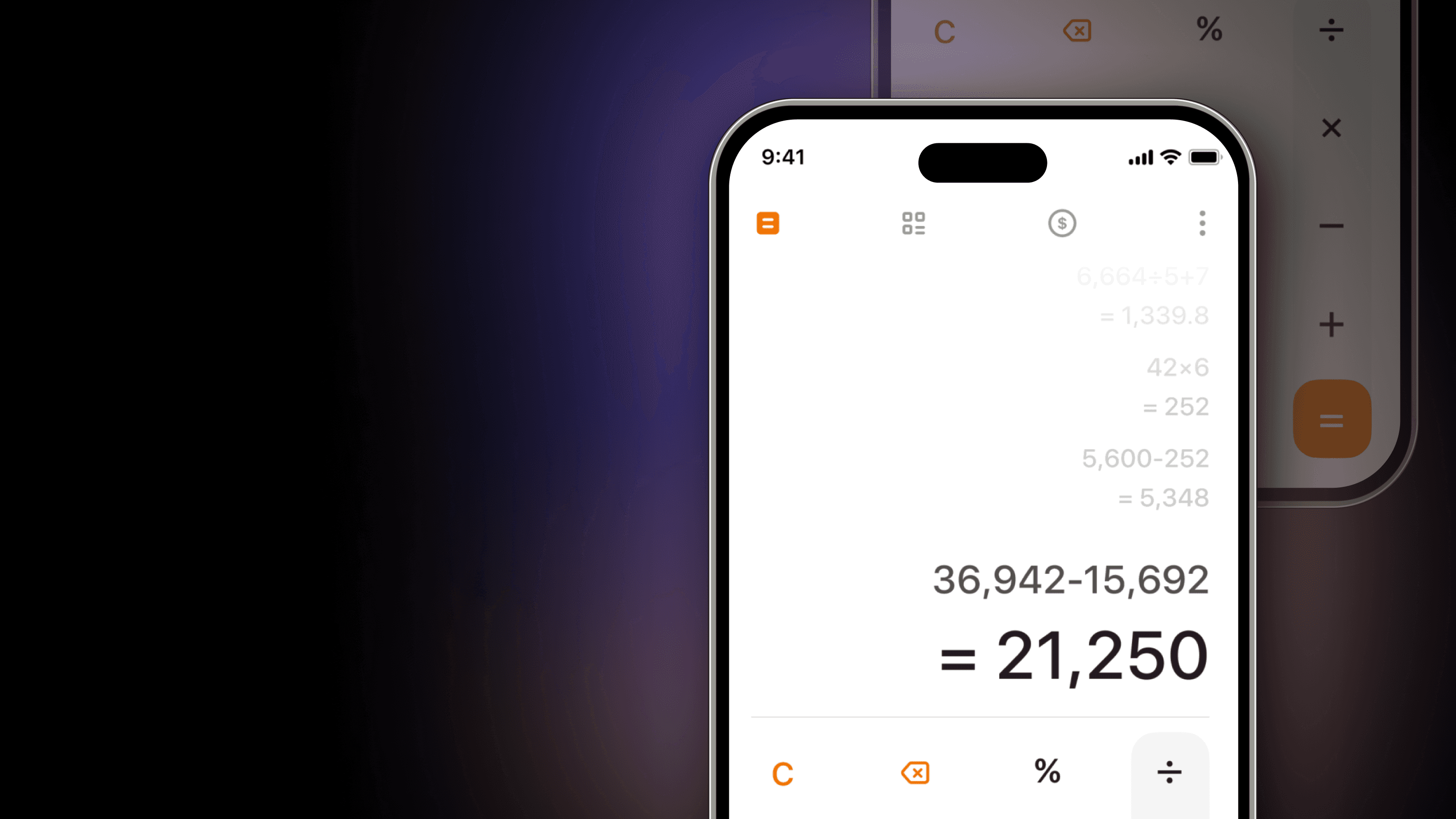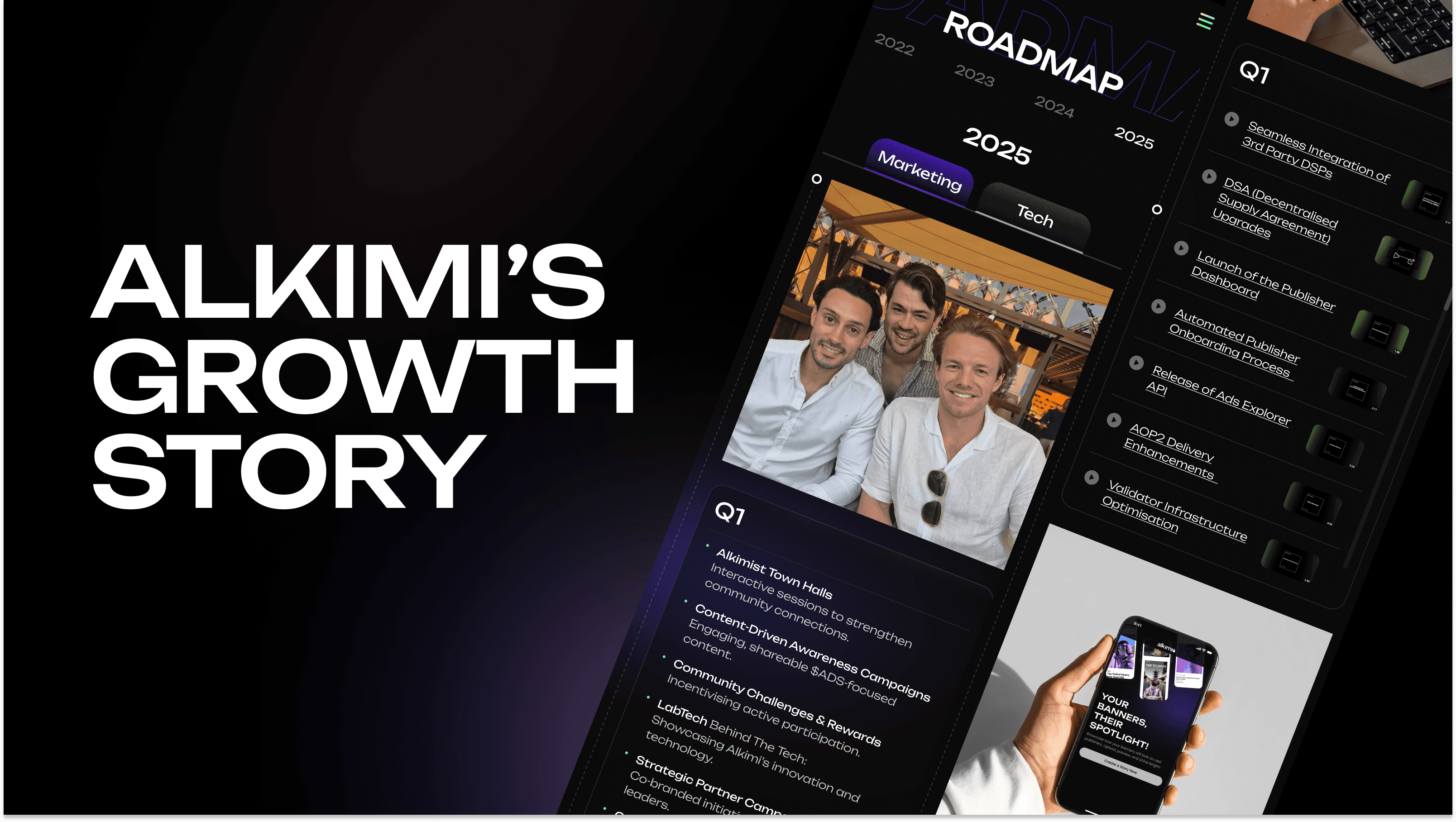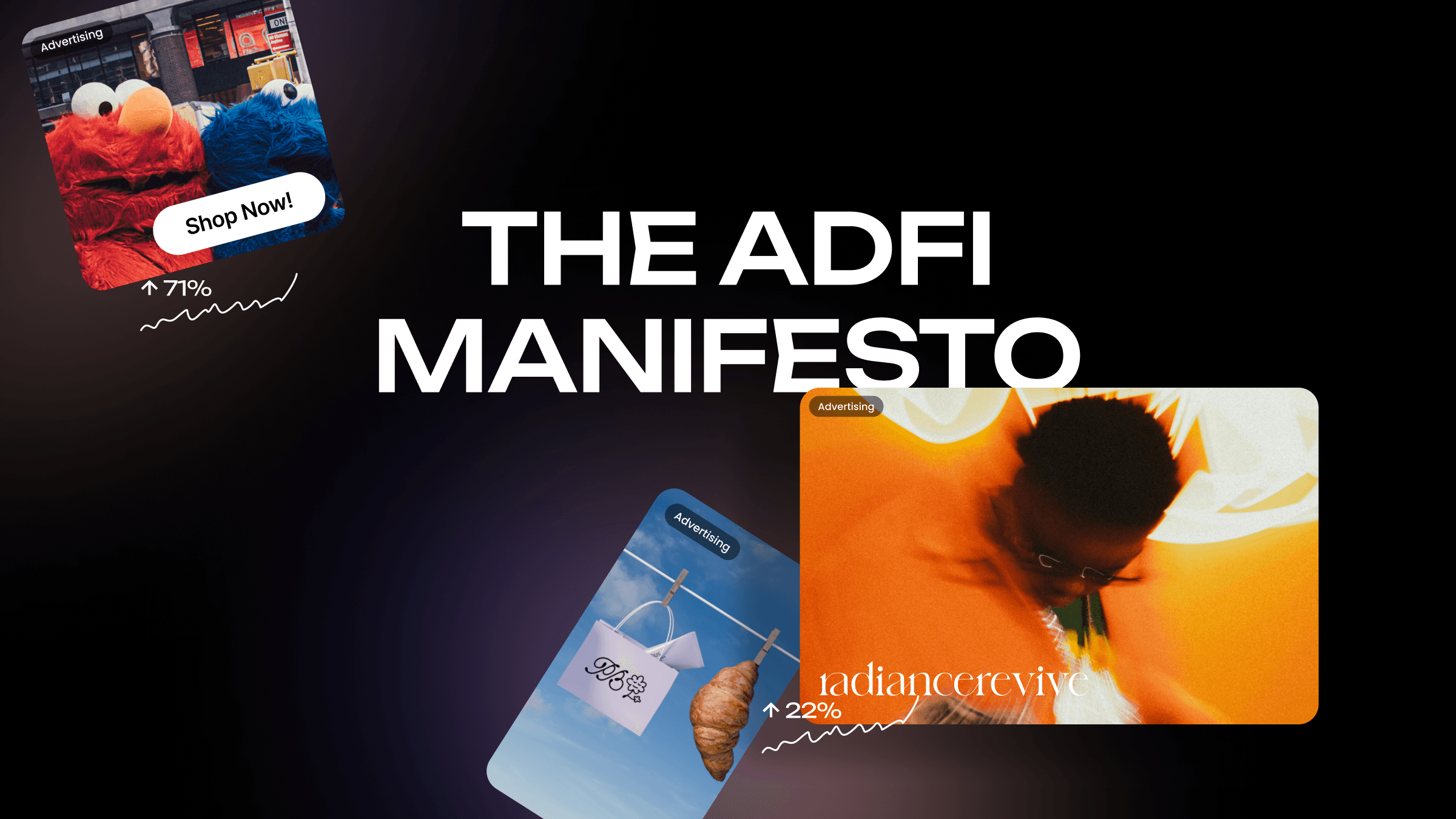
Anonymous Ads Actually Work
The Data Behind Privacy-First Advertising's Surprising Success
I didn't expect to be writing this when I woke up this morning. But sometimes the most important stories come from unexpected places like a hotel bar conversation. To be absolutely honest, I tried at least 5 versions before presenting this one to you. There were those written by AI and those filled with summaries of the sources (listed below) and those that made no sense and were just words stringed together. In the end, the most honest, closest to truth version won! So here it goes...
I was nursing a whiskey around 10 PM with a friend, when a friend of his joined in. In his mid-40s, rumpled suit, tired eyes, the look of someone who'd been through a grinder. We got to talking and he'd been in programmatic advertising for 15 years.
"I want to talk about this," he said, "But I can't go public. Not yet. Too many relationships at stake."
What followed was a three-hour conversation that changed how I think about privacy-first advertising. With his permission, I'm sharing his story here, anonymously, of course. Let's call him "Dave."
The Uncomfortable Truth About Our Industry
"Look," Dave told me, "I've been in this business for 15 years. When privacy advocates started preaching about contextual advertising, I assumed it was just another pendulum swing."
Dave described himself as "that guy at conferences" defending programmatic advertising and rolling his eyes at "privacy theater." Until six months ago.
"The problem is that I was looking at the wrong metrics. We all were."
The Numbers Don't Lie
Dave pulled out his phone and showed me data he'd been collecting. The Association of National Advertisers' latest ad fraud study showed $84 billion in fraud losses globally. A whopping 21% increase from 2023.
"But honestly?" Dave said, leaning closer. "I think that number is conservative. Pixalate's Q4 2024 analysis suggests 32% invalid traffic on programmatic display."
The mobile app numbers were worse: "41% fraud rate. Nearly half of our mobile app advertising budget is going to bots."
Attribution was even more broken. "The Marketing Science Institute found that cross-platform attribution accuracy has dropped to 23%. We're making budget decisions based on measurement systems that are wrong 77% of the time."
Where Dave Admits He Was Wrong
"So here's my confession," Dave said, "I spent Q1 2025 telling everyone that privacy-first advertising was compliance theater. Then I worked with this beauty brand on what was supposed to be a small test."
The results were uncomfortable:
Traditional Approach: CTR: 0.34%, Conversion: 2.1%, CPA: $67, LTV: $189
Privacy-First Approach: CTR: 0.61%, Conversion: 4.3%, CPA: $39, LTV: $267
"I stared at these numbers for an hour," Dave told me. "Then I asked my analyst to check the data again. The results held up."
For those of you not used to programmatic jargon, the above words mean the following
CTR (click-through rate): how many people actually click on your ad
Conversion: how many of those clicks turn into actual purchases
CPA (cost per acquisition): how much you spend to get one new customer
LTV (lifetime value): how much that customer is worth to you over time
Why This Actually Works
"I think I understand why privacy-first approaches work better. It's not just about compliance—it's about signal quality."
Context Beats History
MIT's CSAIL published research showing that contextual signals are 2.3x more predictive of immediate purchase intent than behavioural history.
"Someone reading about sustainable fashion right now is more likely to buy eco-friendly clothing than someone who bought sustainable products six months ago," Dave explained.
The Consent Paradox
"Here's what surprised me," Dave said. "Users who explicitly consent to data collection are actually more engaged with advertising. The University of Pennsylvania found that users who provide informed consent have 67% higher click-through rates and 45% higher conversion rates."
Dave initially thought this was selection bias. "But then I realised: maybe consent isn't just about compliance. Maybe it's about trust."
First-Party Data Quality
Salesforce's 2025 State of Marketing report shows that companies with mature first-party data strategies achieve 89% higher customer satisfaction scores.
"The data quality improvement was dramatic, not just accuracy, but depth. When customers voluntarily share information, they share better information."
The Economics Make Sense
"The economics confused me initially," Dave admitted. "But when you dig into the numbers, the unit economics are actually better."
Traditional programmatic advertising requires expensive tech stacks. Privacy-first approaches eliminate most of these costs. Dave worked with one client who reduced their martech spend by 40% just by switching to contextual advertising.
Publishers are also starting to charge more for traditional tracking enabled campaigns. Prebid.org's study shows a 23% premium for cookie-based campaigns.
The Real Implementation Challenges
"Here's where I'll be completely honest about the challenges," Dave said.
The Skills Gap
"My team has been doing programmatic advertising for years. Privacy-first advertising requires different skills: contextual content analysis, creative optimisation for intent-based contexts, statistical attribution modeling, and first-party data strategy."
Dave spent six months retraining his team. "It's been expensive and frustrating, but the performance results justify the investment."
The Agency Problem
"There's a structural problem," Dave said carefully. "Traditional agencies make money from technology markups and data reselling. Privacy-first advertising threatens these revenue streams."
What's Coming Next
By midnight, Dave was talking about the regulatory environment. "As of right now, 17 states have comprehensive privacy laws covering 71% of the U.S. population."
What makes Dave nervous: "I think we're approaching a compliance cliff. Brands that haven't started preparing for privacy-first advertising are going to be scrambling in Q1 2026."
The EU's Digital Services Act enforcement started this year, with initial penalties exceeding €2.3 billion.
Dave's Q4 Recommendations
"I'm going to be honest about what I think works and what I'm still figuring out," Dave said.
Start Small, But Start Now
"Don't try to rebuild your entire advertising strategy in Q4. Instead, pick one campaign and test privacy-first approaches against your traditional methods."
Dave recommends:
One contextual advertising test
Enhanced first-party data collection
Server-side tracking implementation
Basic marketing mix modeling
Expect a Learning Curve
"This isn't plug-and-play," Dave warned. "You'll need to retrain your team and probably hire some new talent. Budget for this transition. It's an investment, not an expense."
Prepare for Resistance
"Your agency might resist these changes. Your internal team might be skeptical. Based on my experience, this resistance is usually about protecting existing business models, not actual performance."
Dave's advice: "Trust the data, not the opinions."
What Dave Is Watching Next
As we parted ways, Dave mentioned his current interests. "I'm particularly interested in how the creator economy evolves with privacy regulations. CreatorIQ's latest report shows that direct creator partnerships grew 156% in 2024, and I think this trend accelerates as third-party tracking becomes less effective."
He's also watching subscription and community-based models. "Substack's creator economy report shows paid newsletter subscriptions growing 234% annually, and I think this represents a fundamental shift toward direct audience relationships."
"But honestly?" Dave said as we shook hands. "I'm still learning. Six months ago, I thought I understood this industry. Now I realise how much I don't know."
The Bottom Line
"I spent the first half of 2025 arguing against privacy-first advertising," Dave said as we finally called it a night. "I was wrong. The performance data is clear, the economic benefits are real, and the regulatory environment is forcing change."
Dave's biggest regret: "While I was skeptical, some of my competitors were implementing privacy-first strategies. They got better results, lower costs, and stronger customer relationships."
His prediction: "The brands that figure this out in Q4 2025 will have a significant advantage heading into 2026. Not because privacy-first advertising is magic, but because it's better aligned with how users actually behave and how regulations actually work."
Dave's final advice: "I'm saying test, measure, and be prepared to change your mind when the data tells you to. Because being wrong is expensive, but being stubborn about being wrong is catastrophic."
A Note from the Author:
I've been thinking about this conversation for days. Dave's story illustrates something important about our industry: the people with the most valuable insights are often the ones who can't share them publicly. If you've had similar experiences, whether you're ready to go public or not, I'd love to hear from you.
Next issue: I'll be exploring the creator economy and authentic engagement. If you have insights to share (anonymously or otherwise), reach out.
Until then, stay curious.
Research Sources (as verified by Dave):
Association of National Advertisers - Ad Fraud Study 2024
Marketing Science Institute - Attribution Accuracy Study 2025
MIT CSAIL - Contextual vs. Behavioural Targeting Research 2024
University of Pennsylvania - Consent and Engagement Study 2024
Salesforce - State of Marketing Report 2025
LUMA Partners - Marketing Technology Landscape 2025
- Publisher Revenue and Privacy Study 2025
Disclaimer: These insights come from Dave's experience, shared with permission but anonymised for obvious reasons. Your mileage may vary. We've all been wrong before.

ROI Calculator: Proving Decentralised Worth
Discover why only $32 of every $100 in ad spend reaches consumers. This ROI framework reveals the hidden intermediary...
Read now
From Lockdown Lightbulb to Agentic Advertising Revolution
How two advertising veterans turned a lockdown insight into a working blockchain advertising platform—processing 25+...
Read now